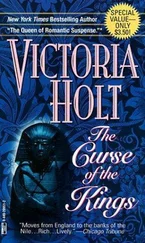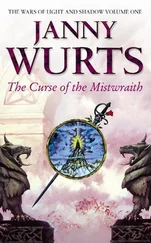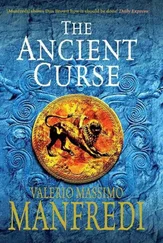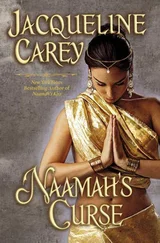I tried to get away from Wheiler House and to call on Camille as I had before Mother’s death. I attempted this four times; Father thwarted me each time. The first time, leaving late for his banking duties, Father spied me as I was hurrying away astraddle my neglected bicycle. He didn’t come into the street to call me back. No. He sent Carson after me. The poor, aged valet had turned red as a ripe apple as he’d jogged along South Prairie Avenue to catch up with me.
“A bicycle is not ladylike!” Father had blustered when I’d reluctantly followed Carson home.
“But Mother never minded that I rode my bicycle. She even allowed me to join the Hermes Bicycle Club with Camille and the rest of the girls!” I’d protested.
“Your mother is dead, and you are no longer one of the rest of the girls .” Father’s eyes had traveled from my gaze down my body, taking in my modest bicycle bloomers and my serviceable, unadorned flat leather shoes. “What you are wearing is lewd.”
“Father, bicycle bloomers are what all the girls wear.”
His eyes continued to stare at me, burning me from my waist down. I had to fist my hands at my sides to keep from covering myself.
“I can see the shape of your body—your legs.” His voice sounded odd, breathless.
My stomach heaved. “I-I will not wear them again,” I heard myself saying.
“Be sure you do not. It isn’t proper—not proper at all.” His hot gaze finally left me. He pushed his hat firmly on his head and bowed sardonically to me. “I shall see you at dinner, where you will behave as, and be dressed in the fashion of, a civilized lady, worthy of her position as mistress of my home. Do you understand me?”
“Yes, Father.”
“Carson!”
“Yes, sir!” His poor valet, who had been hovering nervously in the corner of the foyer had jumped at Father’s violent tone and skittered to him, reminding me of a large, old beetle.
“See that Miss Wheiler remains at home today, where she belongs. And get rid of that infernal bicycle!”
“Very good, sir. I will do as you say…” The old wretch had simpered and bowed as Father had stalked from the house.
Alone with him, Caron’s eyes flicked from mine to the tapestry on the wall behind us, then to the chandelier, then to the floor—everywhere except truly meeting my gaze. “Please, Miss. You know I can’t let you leave.”
“Yes. I know.” I chewed my lip and added, hesitantly, “Carson, could you, perhaps, move my bicycle from the outbuilding to the gardening shed at the rear of the grounds instead of actually getting rid of it? Father never goes there—he’ll not know. I’m sure he’ll be more reasonable soon, and allow me to return to my club.”
“I would like to, Miss, I would. But I cannot disobey Mr. Wheiler. Ever.”
I’d turned on my heels and slammed the door to the parlor that had become mine. I hadn’t really been angry with Carson, nor did I blame him. I did understand all too well what it was to be Father’s puppet.
That night I dressed carefully for dinner in my most modest gown. Father hardly glanced at me while he talked endlessly about the bank, the precarious state of finances in the city, and the impending World’s Fair. I rarely spoke. I nodded demurely and made agreeable noises when he paused. He drank goblet after goblet of the secretly watered wine and ate an entire rack of rare lamb.
It wasn’t until he stood and bade me good night that his gaze lingered on mine. I could see that, despite the weakened wine, he’d had enough of it to flush his cheeks.
“Good night, Father,” I said quickly.
His gaze scalded from my eyes to my lips. I flattened them together, wishing they were less full, less pink.
The gaze then went from my lips to the high bodice of my dress. Then, quite abruptly, he met my eyes again.
“Tell Cook to have the lamb more often. And have her be sure it is as rare next time as it was tonight. I find I have a taste for it,” he said.
“Yes, Father.” I kept my voice soft and low. “Good night,” I repeated.
“You know you have your mother’s eyes.”
My stomach heaved. “Yes. I know. Good night, Father,” I said for the third time.
Finally, without another word, he’d left the room.
I went to my bedchamber and sat in my window seat, my neatly folded bicycling bloomers in my lap. I watched the moon rise and begin to climb its way down the sky, and when the night was at its darkest, I made my way carefully, quietly, down the stairs, and out the rear door that led to the path, which emptied into our elaborate gardens. As I’d walked past the great bull fountain, I pretended that I was just another of the shadows surrounding it—not a living thing … not a girl who could be discovered.
I’d found my way to the utility shed and discovered a shovel. Behind the shed, at the edge of our property, I went to the pile of rotting compost the laborers used as fertilizer. Not heeding the smell, I dug deeply, until I’d been certain they would be safely hidden—and I’d buried my bloomers.
Afterward, I returned the shovel and washed my hands in the rainwater barrel. Then I went to my stone bench beneath the willow tree. I sat within its dark, comforting curtain until my stomach stopped heaving and I was quite sure I would not be sick. Then I sat some more, allowing the shadows and the darkness of the night to soothe me.
* * *
Though not on bicycle —never again on bicycle—I made my way to Camille’s home three more times, walking the short distance down South Prairie Avenue to the Elcott mansion. Two of the three times she and I had managed to stroll toward the lake, wanting to catch a glimpse of the magical world that was being created from marsh and sand, and had the whole city abuzz.
Mrs. Elcott’s maid had intercepted us both times with the urgent message that I was needed at home. When I returned home there was always something to be tended to, but that something was never urgent. And each evening Father drank heavily, his hot gaze focusing on me more and more frequently.
So, you see, it was madness for me to go to Camille a third time. Isn’t it madness to do a thing again and again, and expect a different outcome? Does that not make me mad?
But I do not feel mad. I feel very much myself. My mind is clear. My thoughts are my own. I miss Mother, but the numbness of mourning has left me. What has replaced it is a waiting, wondering sense of dread. To combat the dread I have come to crave the normalcy of my old life so desperately that it is beyond my ability to translate it into words.
Perhaps I am having a bout of hysterics.
But I don’t lose my breath, or faint, or burst into flamboyant tears. So, is the coolness of my temperament more proof that I am mad? Or could how I feel be much like how any girl would feel whose mother’s death had so untimely come? Is Father’s hot gaze only a symptom of his widower’s grief? I do, indeed, have my mother’s eyes.
Whatever is true, I could not stay away from Camille and the life I missed so very much. This very afternoon I visited Camille again. We did not attempt to leave the Elcott home this time. It was an unspoken agreement between us that we knew our visit would end abruptly with Carson coming to escort me home. Camille embraced me and then called for tea in the old nursery that had been made over into a rose wallpapered parlor for the Elcott daughters. While we were alone Camille had grasped my hand.
“Emily, I am so very glad to see you! I’ve been worried! When I called on you last Wednesday, your father’s valet told me you were unavailable. That is exactly what he said the Friday before as well.”
“I was unavailable .” I curled my lip and empathized the word. “Both days I was at dreary Market Hall, being a servant to the homeless of Chicago.”
Читать дальше










